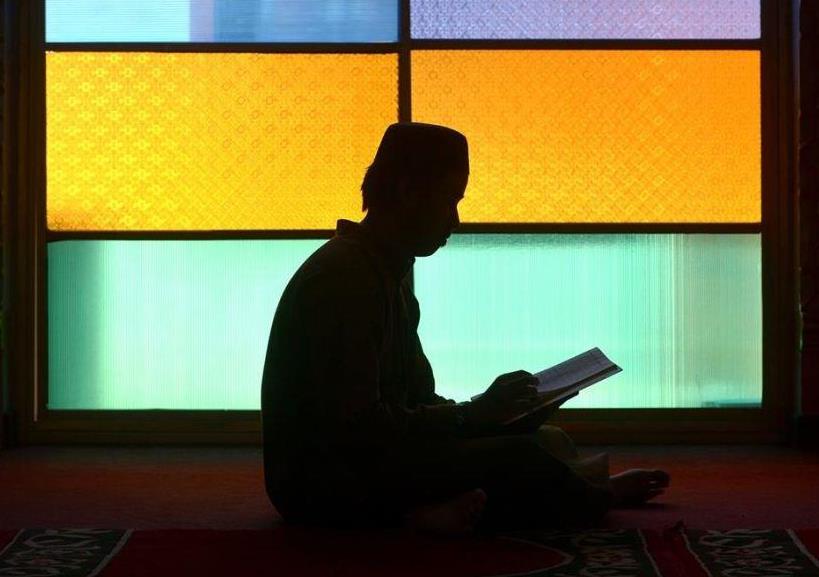10 Days of Upheaval: Entering the Homestretch of the Month of Ramadan

10 Days of Upheaval: Entering the Homestretch of the Month of Ramadan
The following was submitted to the Guardian newspapers by Director and Faculty, Faheem Mohammed, for Ramadan 2022.
We are into the last ten days of Ramadan, and we have entered into the home stretch towards Eid ul Fitr. This last third of the month is a significant one, where extra worship tends to intensify. In one hadith we are told that the Holy Prophet Muhammad (peace be on him) used to exert himself in extra devotion during the last 10 nights – to a greater extent than any other time.
In this last 10-day period is the Laylatul Qadr – the Night of Power – a special night in the Islamic calendar, and one which holds significance for a number of events. In particular, it is the night in which Almighty Allah showers worshippers with an abundance of blessings and mercy, sins are forgiven and du’as (supplications) are accepted. The Holy Qur’an tells us the blessings of this night are worth more than 1000 months – that’s 83 years’ worth of blessings in 1 night. What night is it? While most agree and observe it on the 27th night, we are told in one hadith to seek it on the odd nights in the last ten nights. That’s a lot of blessings.

The night of Laylatul Qadr for blessings is akin to being told there is one day of one month wherein, should you try to withdraw cash from the ATM, you would have unlimited sums to withdraw from. There’s no one I can think of who would miss such an event. And the withdrawals done on that night can set one up nicely for the rest of the year, until that day rolls around in 1 years’ time.
When considered as one such night each year, the result is that over an average lifetime the blessings would be exponentially accrued. Needless to say this is a profound institution for the Muslim mind. An All-Knowing, All-Seeing, Most-Merciful, Most-Forgiving God who promises a lifetime of blessings and benefits in one night – individually – based on that person’s intentions and efforts, can prove quite the motivation. It means that despite your mistakes and your shortfalls, despite you yourself not being merciful or patient consistently – there is a chance to wipe the slate clean, seek forgiveness from the Almighty, and establish a better basis for the year to come.
In this last 10-day period there is also the practice of Itikaf or spiritual retreat. This involves isolation in a mosque or home for the purpose of dedicated worship of Almighty Allah for the last 10 days of Ramadan. Typically done in the mosques throughout the world, persons would enter the mosque on the 10th night, and stay for the remainder of the month engaged in worship, when not attending to their daily needs. There are some rules to follow, and some acts that nullify the efforts, so it is something those pursuing take seriously and are careful about.
Here we find yet another institution that is designed to bring a person closer to Almighty Allah. Concerns for people and matters of the world are sidelined in favor of worship and self-reflection, and perhaps this is why it is reported in one hadith that the person who observes itikaf will obtain the reward of two Hajj (Pilgrimage to Makkah) and two Umrah (circumambulation around the Kaaba) (Bayhaqi). In addition, we find recurring themes of detachment from the world, training or re-training oneself to proper conduct and mannerisms in accordance with Islamic instructions, and a stronger relationship with, and trust in Almighty Allah to look after our affairs. While the outcomes of this retreat tend to be very individual and personal (different people would come out of the exercise with different takeways and impressions) it is hoped that all enjoy purification of their intentions and a renewed vigor in the practice of their faith.
The last 10 days represent the essence of the month of Ramadan. The submission to God’s command through individual self-sacrifice of fasting continues. The need to guard one’s conduct and behavior while undertaking the fast stays top-of-mind. The recognition of the struggles routinely endured by those who are less fortunate keeps one grounded, and is accompanied by increase in the dispensation of charity – itself an ability that persons tend to be more thankful for. The seeking of the night of Laylatul Qadr, and the efforts of even extra worship on this night and in itikaf hold the promise of rewards to be enjoyed either in this life, or the next, if not both. And accompanying all of these, a reminder to not be too attached to the life of this world, or not be a slave to our indulgences and cravings, helps us to temper our materialistic outlook and reinforce the accountability that we believe will occur on the day of Judgement – a day when we will be taken to task for our behaviors and stewardship of our resources in this life, based on our intentions. To state it differently, what people think about you on social media matters very little when you are hungry or ‘dying of thirst’.
Through this annual exercise and adherence to the will and command of Almighty Allah, we are able to not only refine our behaviors but also reestablish our priorities, so that we can continue to strive for the increased welfare of ourselves, our families and our communities, and realise benefit in this world, and the world that is to come.
We pray that Almighty Allah allows us to participate in, and benefit fully from, the last 10 days of Ramadan, and guide us through this period to emerge as stronger and better individuals and communities, for the benefit of our society.